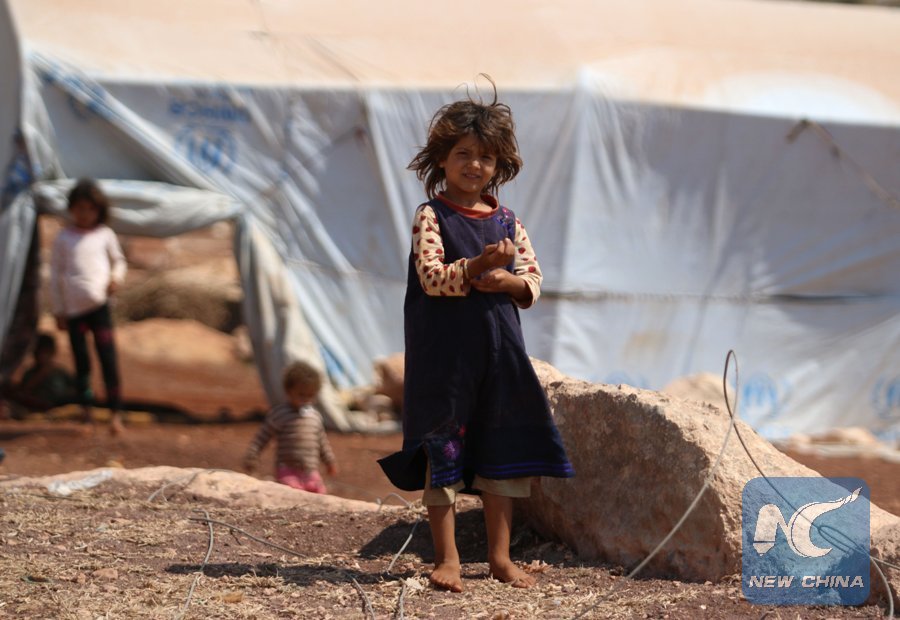
File Photo: A displaced Syrian girl stands outside her tent in a camp in Kafr Lusin near the border with Turkey in the northern part of Syria's rebel-held Idlib province on Sept. 9, 2018. (Xinhua/AFP)
UNITED NATIONS, Sept. 18 (Xinhua) -- UN Undersecretary-General for Humanitarian Affairs Mark Lowcock on Tuesday asked for civilian protection in the creation of a demilitarized buffer zone in Syria's Idlib province.
Whether from within or outside the proposed demilitarized area, should civilians deem it necessary to leave, they must be allowed to seek refuge elsewhere, Lowcock told a Security Council.
Lowcock was talking about Monday's agreement between Russian President Vladimir Putin and Turkish President Recep Tayyip Erdogan to establish a demilitarized zone within Idlib.
In case of displacement from the demilitarized zone, all possible measures must be taken so that affected civilians are received under satisfactory conditions of shelter, hygiene, health, safety and nutrition and that members of the same family are not separated, he said.
It is also important that any screening to distinguish civilians from fighters be undertaken in accordance with international humanitarian law and clear standard operating procedures, ensuring humane treatment and accounting for those who have been screened, said Lowcock.
Special protection and assistance measures should be in place for civilians, in particular women and children family members who have been associated with or are family members of fighters, he said.
Regardless of location, whether within or outside the demilitarized zone, international humanitarian law obligations continue to apply. Warring parties cannot deliberately or carelessly disregard the distinction between civilians and combatants, or between civilian infrastructure and military objectives, said Lowcock.
He welcomed the Russia-Turkey agreement to set up a demilitarized zone in Idlib. If sustained and implemented in full respect of international humanitarian law, the agreement may avert the catastrophe the UN humanitarian system has been warning against, he said.
To succeed, demilitarization requires the agreement of all parties, he stressed. "Short of such agreement, it is foreseeable that force will be used to demilitarize, and thus civilians exposed to the very harm we are trying to avoid."
Across much of the country, the situation is now calmer than it was in January. But humanitarian needs still remain substantial, said Lowcock.

